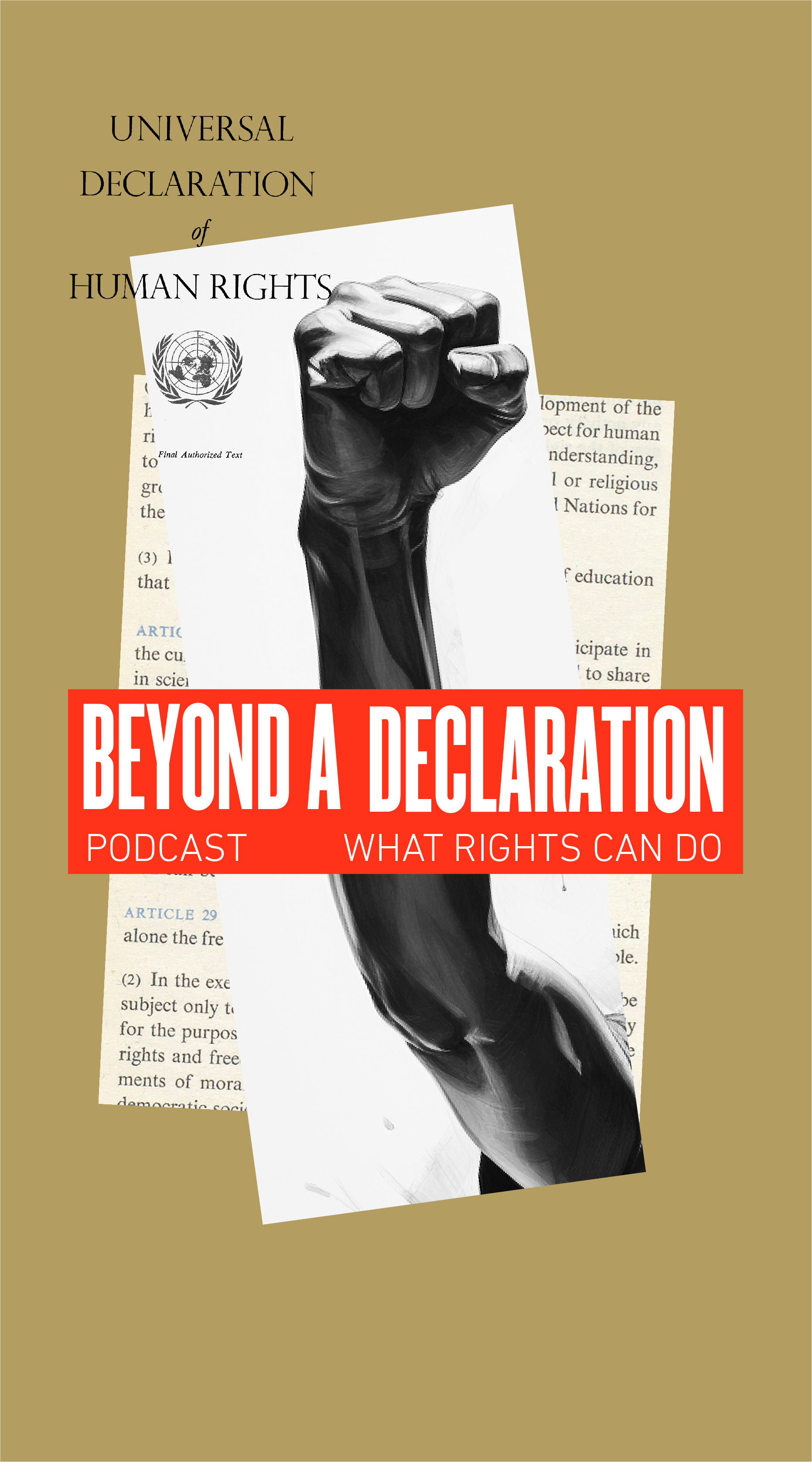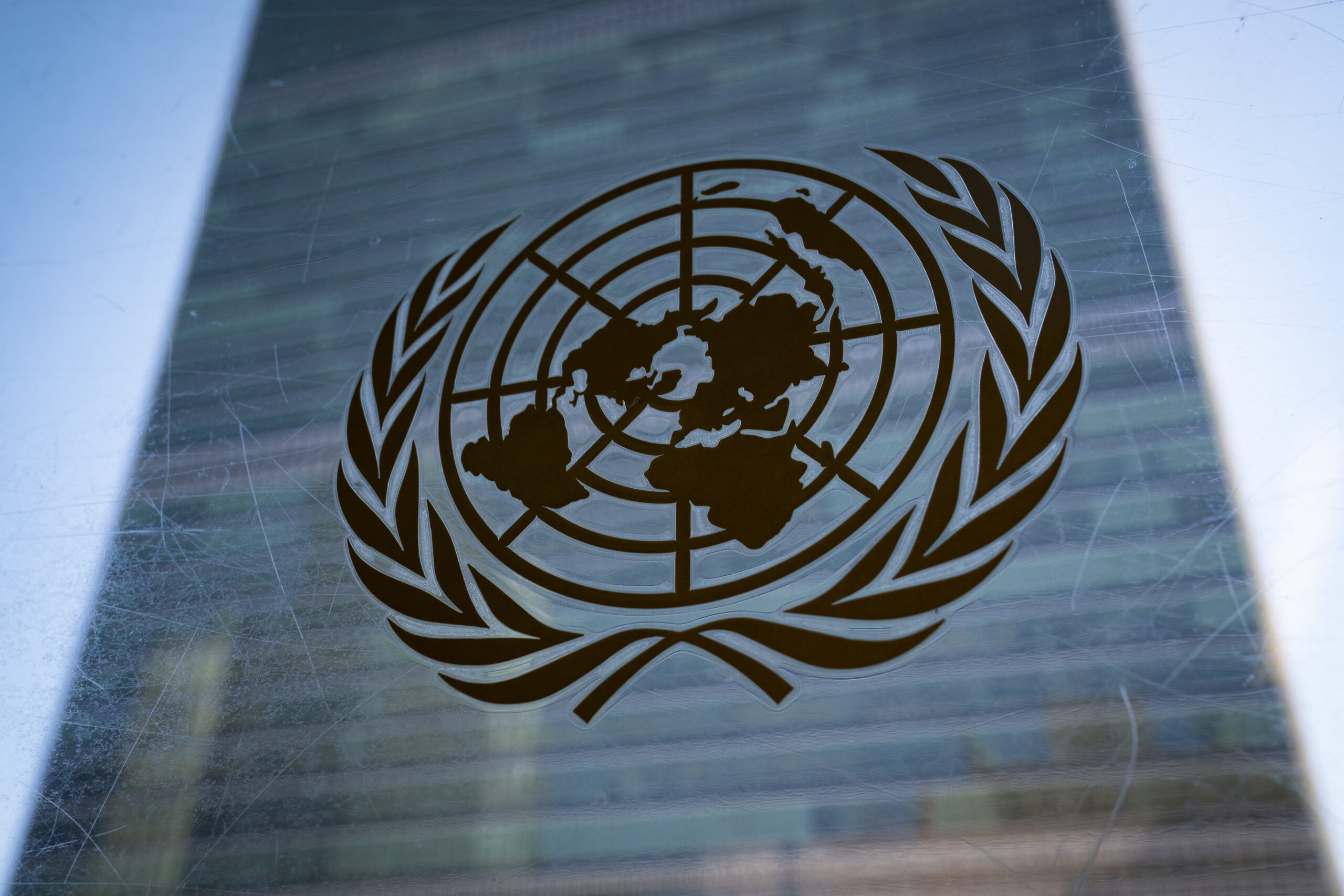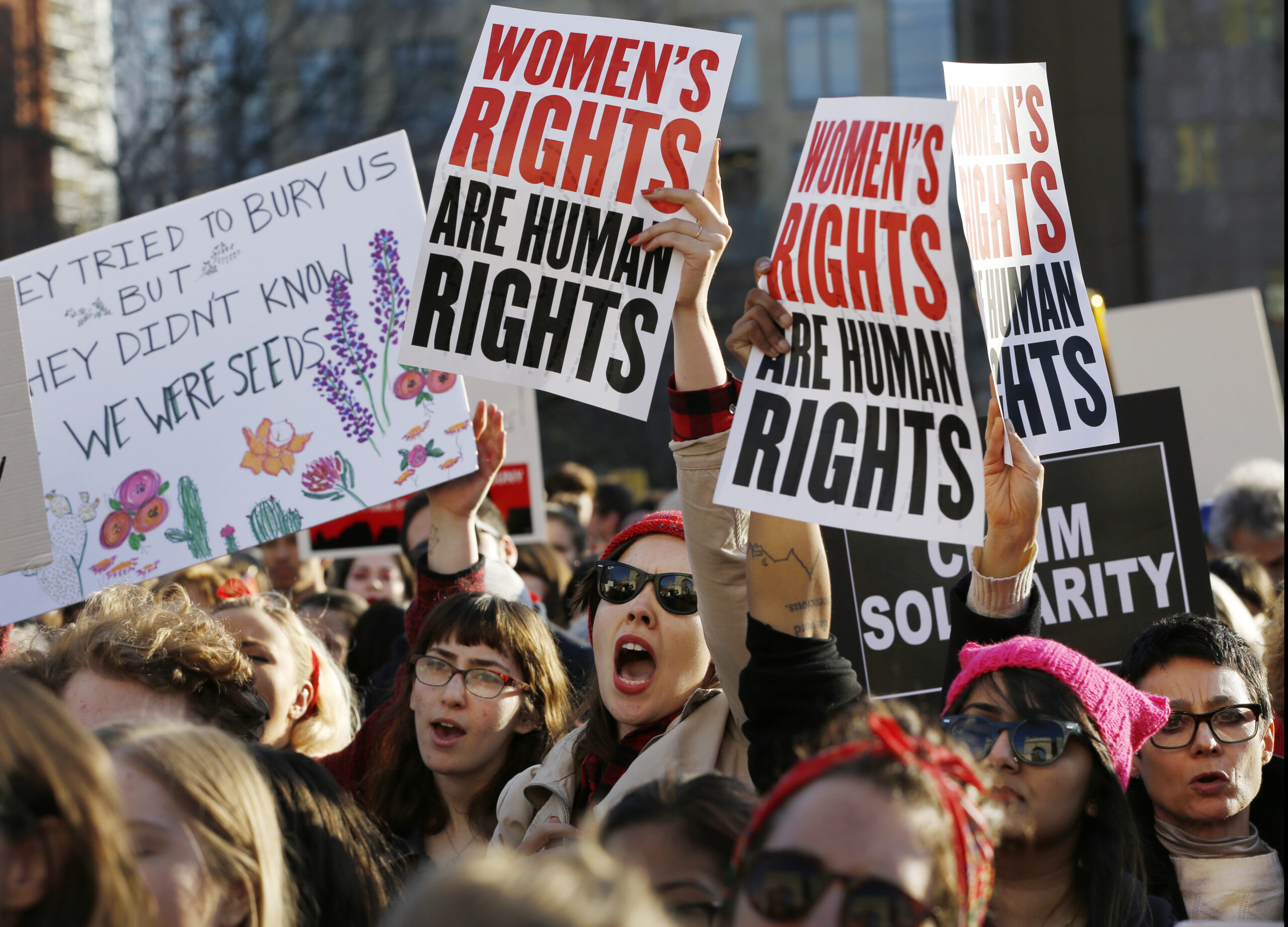The renowned activist discusses her newfound political ambitions
Activist Carola Rackete first made headlines in Germany in 2019, when, as captain of the Sea-Watch 3, was refused permission to dock in Lampedusa, Italy, following a standoff with Italy’s then-interior minister, the far-right provocateur Matteo Salvini. Yet even if her migrants’ rights activism has garnered the most attention, Rackete has been deeply involved in other campaigns — particularly the fight against climate change — for much longer, seeking to build connections between environmentalists, social justice activists, and anti-racists in order to foster a bigger, stronger movement for everyone. As she explained in her 2021 book published by the Rosa Luxemburg Foundation, The Time to Act Is Now, “We are at a turning point in human history. To stop climate breakdown and extinction, environmental movements need to be actively anti-racist and join struggles for social justice.”
Last year, Rackete surprised supporters and detractors alike when she announced that she would be standing for the European elections as an independent candidate on the list of Die Linke, Germany’s democratic socialist party. Since then, she has travelled around the country — and the continent — making her case for why Germany needs an independent activist voice in the European Parliament. We spoke with her during the campaign to learn more about her political vision and goals, in- and outside of parliament.
Carola, you’re primarily known as a social movement activist. Why are you now running for the EU Parliament on Die Linke’s electoral list?
In order to get parties and governments to implement change, social movements have to generate pressure on the streets. This works best when they have allies in parliament. I would like to help movements from Europe and the Global South to be heard.
I would also like to use my candidacy to draw attention to the fact that the shift to the right we’re seeing at the moment imposes the urgent need for left-wing parties with a progressive agenda in parliaments. If we are going to stop the climate crisis and species extinction, we need to get at the heart of injustice. Since there is no other party that opposes capitalism and is willing to talk about compulsory acquisitions and public ownership, Die Linke is the only option, as far as I’m concerned.
What issues will you focus on if you’re elected as an MEP?
I am a conservation ecologist and have worked in the field for years, particularly in civil society campaigns to protect the environment and human rights. As a member of parliament, I will keep working on climate justice and conservation/biodiversity, and also include agriculture, where these two issues intersect. My focus will be on social and global justice in an effort to combat the root causes of environmental problems.
Three specific points here are: paying for the transformation, putting energy and heating infrastructure in public ownership, and the just conservation of resources. We have to make the public aware of the influence of lobbying on politics and campaign for more democracy and transparency in EU institutions.
What would a socially just climate policy look like at the European level?
Tax reform would be a way to pay for climate crisis mitigation while at the same time taking into account questions of social justice. We need to introduce new taxes for transnational and multinational corporations. A financial transaction tax and a unitary taxation of corporations at the EU level by means of a 25 percent tax on corporate profits would help unify taxation across the EU. This money should then go towards measures for climate justice and for transforming relevant sectors, such as local public transport. Public transport should be free and its infrastructure massively expanded, since more and better public transport leads to both less private transport and more mobility for everyone. Tax revenues can also be used to transform agriculture.
The expansion of renewable energies is another area where we can both make progress in tackling the climate crisis as well as provide relief to consumers. The generation of energy and heat must be taken away from the corporations and given to cooperatives or the state to manage on a non-profit basis. Everyone must have access to locally produced and affordable energy provided by municipal utility companies or energy cooperatives operating according to the principles of a social economy with sliding scale pricing.
Protecting the climate and social justice can also go hand in hand in the housing sector — if we prevent it from being included in the European Union Emissions Trading System. Since tenants have no influence on the kind of heating in their flat or whether it has been well maintained, fixed-fee pricing here is socially inequitable. In principle, the proposed Social Climate Fund is a step in the right direction, but it is insufficiently funded and needs a larger budget. This money should be used to expand the non-profit housing sector in order to ensure greater equity in housing.
A resource conservation law would promote socially equitable climate policies, such as by making clean drinking water available everywhere. On a very basic level, we urgently need to cap our demand for resources and reduce it year by year. This would also help stop the exploitation of the Global South and contribute to the dismantling of neocolonial structures.
How can we implement the steps necessary to combat the climate crisis in a way that will be accepted by society?
By being honest and by passing laws that prohibit the burning of fossil fuels, that make polluters pay, and that diminish the burden on poor people. We can’t rely on corporations to voluntarily implement radical measures, to take responsibility of their own accord. Their lobbying is too powerful and corporate interests are consistently pandered to within the existing structures.
This shows that we need laws, but ultimately also a different economic system. There is no such thing as a “green capitalism” that would remain within planetary limits. We have to be honest about how dramatic the situation is in terms of the climate catastrophe and wealth inequality, and that we can’t continue as we have been. The solution lies in the radical redistribution of wealth and a transformation of power relations.
Our only chance is to build alliances that bring together trade unions, the party, and social movements. I am running for office to help make this happen.
Farmer protests in Germany and other European countries have been keeping politicians on the edge of their seats for months now. In what ways does EU agricultural policy need to change?
Quite simply: farmers need to be able to make a living from their work. We need to stop the trend of more and more farmers giving up their farms because they are under economic pressure. This leads to the continual increase in the size of agricultural holdings because the land is bought up by larger operations. Young farmers need to be able to acquire land in order to set up their own farms.
We need to confront the appalling fact that 60 percent of agricultural land in Germany no longer belongs to farmers, but to investors and large companies. This has led to a significant rise in prices — agricultural land now costs twice as much as it did 15 years ago. Land has become an object of speculation. We need to introduce size caps so that corporations and investors, some of whom have no connection to farming, do not drive up land prices. Social and environmental factors must be front and centre when leasing land — the common good should set the agenda here, not profits.
The choice of who land is leased to determines whether small and diverse farms are supported or only large, industrial farming operations. This means that landlords have a powerful tool, which they can also use to help combat the climate crisis.
Most importantly, subsidies should not be tied to acreage, but should be awarded for social and environmental practices. It is our tax money that is givengoes to the farms in the form of subsidies. These subsidies should be applied in the interests of society, and society wants welfare-oriented animal husbandry, diverse farms and sustainable production, water conservation, and efforts to mitigate the climate crisis. Farmers can implement this as long as agricultural policy is geared toward the common good in terms of how subsidies are distributed. And the European Common Agricultural Policy should make money available for the necessary agricultural transformations, such as reducing the number of animals or cultivating and marketing legumes.
Do the protesting farmers even have the same interests as the farmers’ associations?
To some extent they do, but farmers’ associations often primarily operate in the interests of large corporations and industrial agribusiness. Today it is mostly farms with large land holdings that benefit from EU payments, not organic farms and those with less land.
The vast majority of farmers want to make their livelihoods from selling their products rather than from subsidies. Currently, however, they are often forced to sell their products below the producer price to the four major food retailers Edeka, Rewe, Aldi, and Lidl, which control over 75 percent of the market, because, for instance, there is a lack of alternative processing or distribution structures. Selling below the producer price is prohibited in countries like France or Spain; this could be implemented EU-wide.
But there are also family farmers, or those with small and medium-sized or organic farms who understand that the climate crisis — which they see in their fields every day — is imposing the urgent need for extensive change and who are protesting for more government support for their contribution to the transition. Their interests are not the same as those of the farmers’ associations: they are concerned with things like regional food systems, support for organic farming, or funding for the conservation measures that they want to implement.
There are similar differences when it comes to regulating genetic engineering. The German Farmers’ Association expressly welcomes current proposals for less regulation in this area. Organic farmers, on the other hand, are up in arms because genetically modified organisms can contaminate organic products throughout the entire food production chain: seeds from genetically modified plants can easily be carried by the wind or animals to neighbouring fields; sharing machinery, which is not uncommon, also harbours risks; and genetically modified grain could spoil the organic harvest in mills or storage facilities. Deregulating the existing law would thus pose a problem for organic farming and is also rejected by a majority of consumers in Germany.
What role does agricultural policy play for climate policy?
Agricultural policy is hugely significant for climate policy. In Germany, agriculture generates around 65 million tonnes of carbon dioxide equivalents, or 7.5 percent of Germany’s emissions. If we include emissions from draining marshland for agricultural use, ploughing up grassland, burning fossil fuels in farming and in the production of pesticides and fertilisers, that’s another 43 million tonnes, which brings us to 12.5 percent of Germany’s emissions.
But in addition to these direct emissions, agricultural policy also concerns the use and pollution of water, the use of pesticides, and the preservation of healthy soils. These problems are all connected to livestock farming, which generates one fifth of agricultural carbon emissions. Thirty percent of arable land worldwide is used to grow soy, wheat, and maize for animal feed. In the EU it is even 60 percent. Factory farming is a driving force behind the climate catastrophe and the loss of biodiversity.
Without an agricultural policy focused on mitigating the climate crisis, climate policy and climate justice don’t stand a chance. We have to think on a global scale. The Mercosur agreement is a good example of this: the deal seeks to facilitate, and thus increase, trade of the very products that lead to slash-and-burn agriculture in the Amazon and other biodiverse tropical forests, the displacement of indigenous people, and human rights violations. The planned easing of restrictions on the export of certain products from the EU is also problematic, as this includes, for example, toxic pesticides from European chemical companies that in some cases are not even authorized in the EU. Facilitating the export and increasing the use of these chemicals would put the health of local people at grave risk — and have a disastrous impact on nature. I would like to work against this in the EU Parliament.
Translated by Millay Hyatt and Marty Hiatt for Gegensatz Translation Collective.
This article was first published on rosalux.de.
Photo: Andreas Domma



